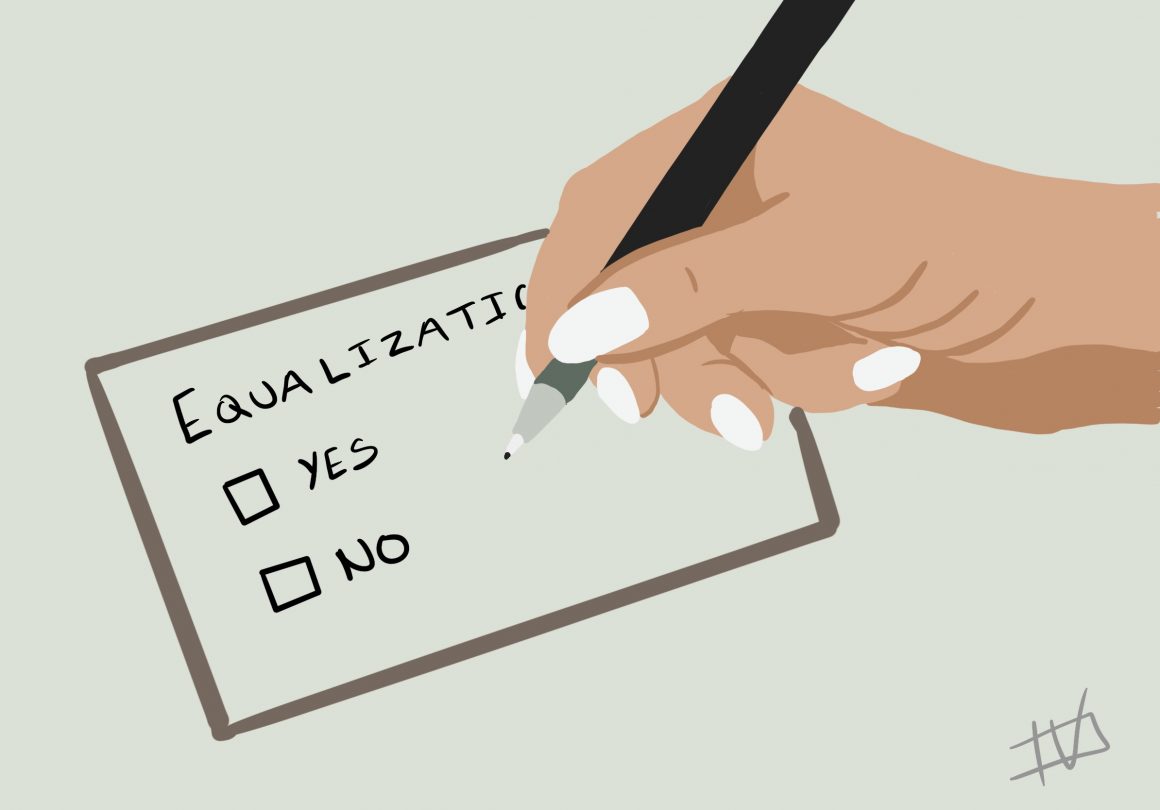
Professors host webinar on Alberta’s equalization referendum
By Eula Mengullo, October 15 2021—
The Centre for Constitutional Studies in the Faculty of Law at the University of Alberta hosted a webinar discussing the legal, political and economic implications of the Equalization Referendum set to take place on Oct.18.
Panelists included Lisa Young, political science professor at the University of Calgary, Trevor Tombe, economics professor and research fellow at the School of Public Policy at the U of C and Eric Adams, professor and vice dean in the Faculty of Law at the U of A.
The three panelists weighed in on how the referendum on removing the principle of equalization payment can impact Albertans and the federacy.
Referring to the Victoria Charter of 1971, Tombe explained that the principle of equalization payments was established to reduce regional disparities and ensure that provinces can provide public services of reasonable quality without having to resort to exorbitant rates of taxation. This principle is embedded in part three, section 36(2) of the Constitution Act of 1982.
Tombe elaborated that the formula for payment distribution is measured by each province’s fiscal capacity. Considering a broad range of provincial revenue — personal and corporate income taxes, consumption and property taxes and resource revenue — this would determine the province’s fiscal capacity, and therefore decide if they would receive a payment or not.
The panel also addressed the common sentiment that Alberta is paying more money to the federal government and explained that this is actually not the case.
“[Section 36(2)] asks nothing of the provinces,” Adams said. “It is a commitment made by the parliament and Government of Canada to continue to provide fiscal support to provinces. It is a federal program, and a commitment to continue a federal program generated through federal tax dollars to supply support to provinces that need it.”
Tombe also clarified that the per capita amount of federal revenue raised from taxpayers is indeed higher in Alberta as it is home to many individuals who are making higher than average incomes.
With regards to the referendum question, Young explained that while it is asking for the opinion of voters, it does not obligate the federal nor the provincial government to do anything. In response to why this is currently being voted on, Young alluded to the Fair Deal panel — which was created in response to the wave of separatist sentiment born out of the 2019 Federal Election after Liberals maintained government — that recommended the provincial government to hold a referendum on the issue of equalization payments. Therefore, a strong “yes” vote on the Alberta referendum does not oblige the federal government to concede to its request.
Adams also emphasized that a majority on the vote does not allow the province of Alberta to unilaterally amend the equalization formula, nor the constitution itself. Instead, a majority vote would result in the province gaining leverage in initiating the talks to amend the constitution at the first minister’s meeting. Although, according to Adams, any province could also initiate the discussion over constitutional amendments without having to hold a referendum.
Throughout the webinar the panelists also raised some concerns over the lack of public awareness and debate on the referendum and the disenfranchisement of those who live outside the municipalities. Young predicts that if the referendum does receive strong support, voter turnout could lead to questions over the outcome’s legitimacy.
“Why did the province decide to hold an important referendum — if they think that this is in fact important — and not have polling stations available to Indigenous voters who don’t live in municipalities?” said Young.
Similarly, Adams echoed the question of the weight of the outcome that the referendum may produce, while also acknowledging the lack of media and political attention attributed to it.
“What weight does this ‘yes’ or ‘no’ vote possibly carry when it’s attached to a municipal election that [could] have a low voter turnout?” Adams said.
If the omission of section 36(2) does proceed however, Adams underlined that this does not change the fact that the federal government can still do whatever it wants with the money that it generates through income tax.
The referendum will take place during Alberta’s municipal election on Oct. 18.
The recording of this webinar is available for public viewing on the Centre for Constitutional Studies’ website.
